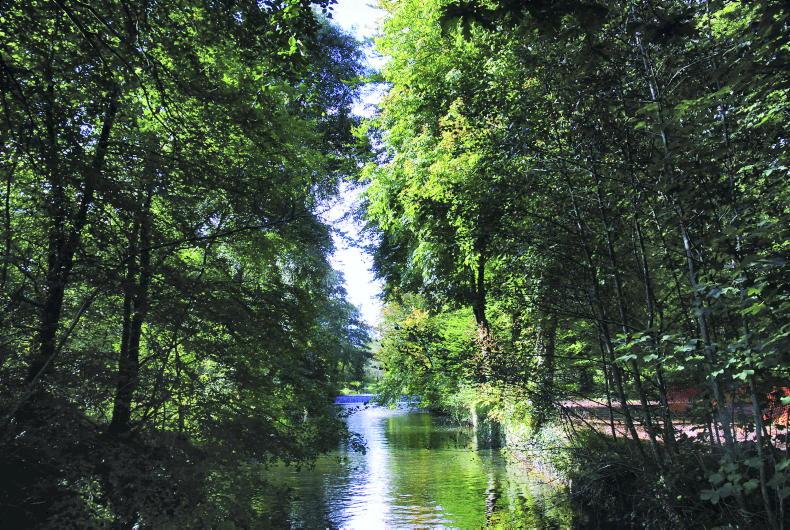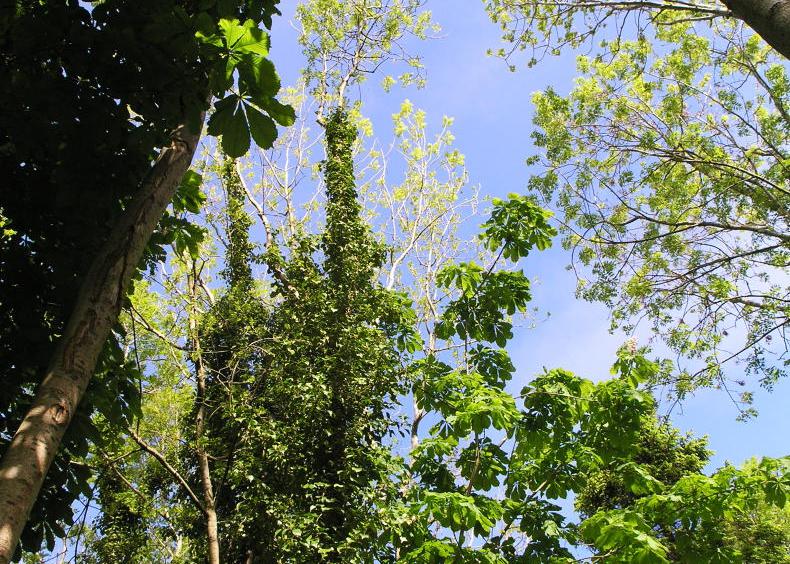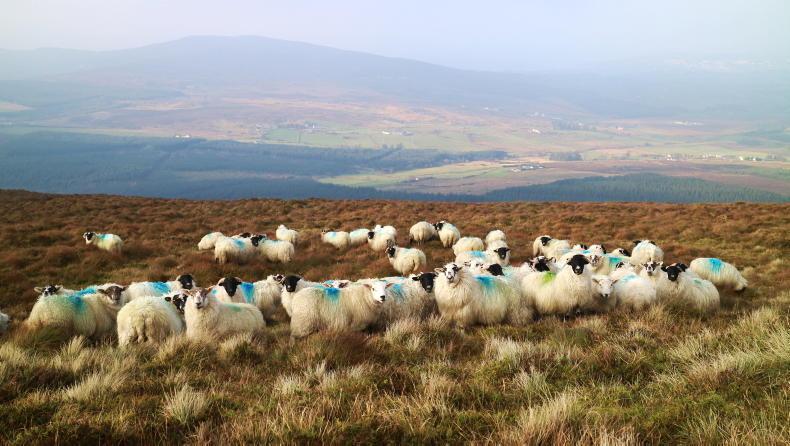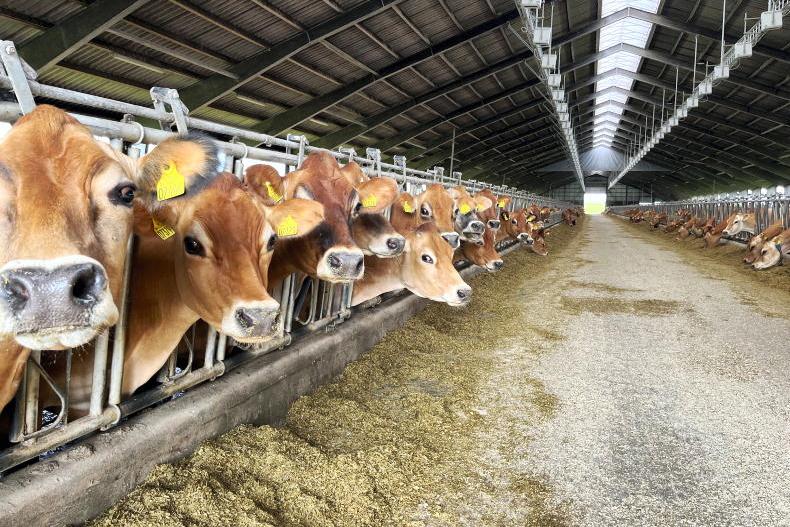Rotary Ireland announced the winners of its Third Level Environment Awards – Achieving Net Zero with Forest and Wood – last Tuesday.
Acknowledging the multipurpose role of forestry as outlined in Ireland’s Climate Action Plan, Rotary invited students to submit projects on how forests and wood products can help Ireland achieve carbon neutrality by mid-century.
The awards are supported by the Department of Agriculture, Food and the Marine (DAFM) under its forestry promotion projects.
Students submitted projects across a wide range of disciplines including, forestry, ecology, agroforestry, wood energy, architecture, engineering and furniture design.
Projects covered topics from forests and land availability in water catchment areas to native woodland wind resilience, and the role of agroforestry while sustainable wood use was explored in architecture, renewable energy and a furniture-making collaborative project involving Irish and international stakeholders.
The Rotary Ireland winner’s medal and €4,000 cheque went to Tom Cullen, final-year forestry student at University College Dublin (UCD) for his project ‘Potential Land Availability for Tree Planting as a Form of Natural Flood Management in Ireland’.
In addition, seven shortlisted projects received highly commended and commended certificates from a longlist of 14 projects.
Highly commended projects
Four projects from UCD, Atlantic Technological University Connemara (ATU) – one each – and two from Technological University Dublin (TUD) were highly commended by the judging panel.
Isabel Robinson, Eoin Dalton, Melissa Shiel and Ciarán Gell reached out to another continent in their furniture design project ‘Connecting Communities – Changing perspectives on tropical hardwoods’.Guided by tutor Davin Larkin, the second-year students undertook a collaborative project between their own university, Galway County
Council and Cities4Forests Partner Forest Programme, who acted as the intermediary between the communities.
Students created outdoor public furniture for the community of Clifden, Co Galway using FSC-certified tropical hardwood that was harvested by the community of Itacoatiara in the Amazon rainforest. As part of the project, there was an ATU competition to select the winning students.
The four winning students worked with local furniture makers in Uaxactún, Guatemala as part of their project.
In her project, Marianne Velasco answered the question: ‘How can construction methods support the development of continuous cover forestry (CCF)?’ The TUD student, under the guidance of tutors Steve Larkin and Kevin Donovan, explored the use of round timber from early CCF thinnings in her study ‘Round Timber Tectonics’.
While we think of sawn timber for construction Marianne says her project “has the potential to motivate interest towards the innovation of new round timber construction” across a variety of disciplines through design demonstration directed by the draft guidebook” she plans to produce.
Pauline Ascon, Yanika Farrugia, Ross McCann and Niamh Whelan School submitted a project entitled ‘Back to Ireland’s Roots: Integrating Storm Resilience into the Afforestation Plan for Native Forests (ISRAP)’.The UCD master’s students state: “The project strategically focuses on storm resilience in native forests due to their vital ecological benefits despite only making up 2% of Ireland’s total forest cover.”
Supervised by Dr Cara Augustenborg, Assistant Professor, the project makes a number of recommendations including the need “to understand the potential of hedgerows as nature-based solutions for improving soil drainage”.
Engineered wood in sustainable architecture was the theme of Sean Auden’s project. The TUD student took the Healthcare Centre Dundrum as an example of best practice.He demonstrated “how it exemplifies a pioneering approach to eco-friendly construction, harnessing engineered timber products to significantly reduce carbon emissions and promote sustainability”.
The project employs cross-laminated timber (CLT), glulam, and timber cladding, offering substantial environmental benefits over conventional materials like steel and concrete.
Supervised by Dr Malachy Mathews, he demonstrated through Life Cycle Analysis (LCA) that the timber frame emits 53% less CO2 emissions than a comparable steel frame building.
Commended projects
Three projects from Munster Technological University (MTU) Kerry, South East Technological University (SETU) and University Limerick (UL) received commendation from Rotary.
David Monson MTU Kerry researched “Agroforestry as an alternative to improved agricultural grassland for the provision of ecosystem services” in his masters project.
Agroforestry can improve soil health he maintained in research carried out under the supervision of Mary O’Looney. The project undertook tests and samples to verify these claims as two grassland sites were compared to two agroforestry sites, one alder and one oak.
Liam Connolly of SETU investigated “the accuracy of moisture content determination methods to reduce fine particle emissions”. Supervised by tutor Tom Kent, the study objective was “to determine the most efficient drying methods used in wood fuel production to reduce the quantity of airborne particles that are emitted after combustion”.The investigation compares “the firewood quality management drying process” and “the Department of Environment and Climate Change method”.
Sustainable wood construction was the subject of James Kennedy’s project “Creating a Collective Space”. The UL student, guided by Peter Carroll, focused his research on “simple timber construction methods [that] seeks a more communal way of building”.The primary structure is knee-beam construction, with spans between 3.2 and 9.6 meters, creating shed-like structures that offer quick shelter.
The entire structure can be made from off-the-shelf materials, allowing for cheap and quick assembly.
Rotary award winner Tom Cullen explored “Potential Land Availability for Tree Planting as a Form of Natural Flood Management in Ireland” for his final year project at UCD.
Land availability for afforestation in Munster water catchment areas
Under the guidance of tutor, Dr Amanda Sosa, Tom Cullen’s innovative – and winning – UCD project addresses natural flood management (NFM), which consists of controlling river flow at the catchment scale.
The study assesses the area of land available for tree planting as an option for NFM in the sample study area of Counties Cork, Kerry, and Waterford. Spatial datasets from government databases were gathered and processed with various spatial analysis tools available in the Geographic Information System software ArcGISPro V3.0.
The study concluded that NFM tree planting has significant potential for implementation in Ireland. Maps visually representing the findings were created to assist in perceiving areas of opportunity and the obstructions to opportunity.
The results show there is an afforestation opportunity area of 88,675ha in the riparian zone and 659,496ha in the wider catchment of Counties Cork, Kerry and Waterford, combining to a total opportunity area of 748,171ha or 52.7% of the study area.
The judges believe that this project presents opportunities for further development on a national scale. They agree with Tom Cullen’s conclusion that the study needs more research into NFM tree planting on many sites varying in scale and implementation methods to more accurately assess and identify areas of opportunity and priority.
Rotary Ireland and the Environment awards
Rotary Ireland is an all-island voluntary organisation with a membership of 1,600 in 65 clubs. It supports health, education and environmental projects mainly in the communities where the clubs are based.
It also supports international projects in developing countries, as part of a worldwide organisation of 1.2 million members.
It is best known for its €1.2 billion polio eradication programme, co-funded with the Bill and Melinda Gates Foundation and the UN World Health Organisation.
“This award is part of our sustainability programme,” said Seamus Parle Rotary Ireland, District Governor.
“We acknowledge the generous funding of the Department of Agriculture, Food and the Marine, Rotary Ireland and the Rotary Clubs of Wicklow and Dublin Fingal,” he added.
He also thanked the judging panel of Marina Conway Forestry Consultant and Nuffield Scholar, Simon O’Driscoll of Simon O’Driscoll Furniture, Aileen O’Sullivan Senior Ecologist, Coillte, Des O’Toole Marketing and Communications Director, Forest Industries Ireland and John Winslow Director, Donnelly Turpin Architects.
Rotary Ireland announced the winners of its Third Level Environment Awards – Achieving Net Zero with Forest and Wood – last Tuesday.
Acknowledging the multipurpose role of forestry as outlined in Ireland’s Climate Action Plan, Rotary invited students to submit projects on how forests and wood products can help Ireland achieve carbon neutrality by mid-century.
The awards are supported by the Department of Agriculture, Food and the Marine (DAFM) under its forestry promotion projects.
Students submitted projects across a wide range of disciplines including, forestry, ecology, agroforestry, wood energy, architecture, engineering and furniture design.
Projects covered topics from forests and land availability in water catchment areas to native woodland wind resilience, and the role of agroforestry while sustainable wood use was explored in architecture, renewable energy and a furniture-making collaborative project involving Irish and international stakeholders.
The Rotary Ireland winner’s medal and €4,000 cheque went to Tom Cullen, final-year forestry student at University College Dublin (UCD) for his project ‘Potential Land Availability for Tree Planting as a Form of Natural Flood Management in Ireland’.
In addition, seven shortlisted projects received highly commended and commended certificates from a longlist of 14 projects.
Highly commended projects
Four projects from UCD, Atlantic Technological University Connemara (ATU) – one each – and two from Technological University Dublin (TUD) were highly commended by the judging panel.
Isabel Robinson, Eoin Dalton, Melissa Shiel and Ciarán Gell reached out to another continent in their furniture design project ‘Connecting Communities – Changing perspectives on tropical hardwoods’.Guided by tutor Davin Larkin, the second-year students undertook a collaborative project between their own university, Galway County
Council and Cities4Forests Partner Forest Programme, who acted as the intermediary between the communities.
Students created outdoor public furniture for the community of Clifden, Co Galway using FSC-certified tropical hardwood that was harvested by the community of Itacoatiara in the Amazon rainforest. As part of the project, there was an ATU competition to select the winning students.
The four winning students worked with local furniture makers in Uaxactún, Guatemala as part of their project.
In her project, Marianne Velasco answered the question: ‘How can construction methods support the development of continuous cover forestry (CCF)?’ The TUD student, under the guidance of tutors Steve Larkin and Kevin Donovan, explored the use of round timber from early CCF thinnings in her study ‘Round Timber Tectonics’.
While we think of sawn timber for construction Marianne says her project “has the potential to motivate interest towards the innovation of new round timber construction” across a variety of disciplines through design demonstration directed by the draft guidebook” she plans to produce.
Pauline Ascon, Yanika Farrugia, Ross McCann and Niamh Whelan School submitted a project entitled ‘Back to Ireland’s Roots: Integrating Storm Resilience into the Afforestation Plan for Native Forests (ISRAP)’.The UCD master’s students state: “The project strategically focuses on storm resilience in native forests due to their vital ecological benefits despite only making up 2% of Ireland’s total forest cover.”
Supervised by Dr Cara Augustenborg, Assistant Professor, the project makes a number of recommendations including the need “to understand the potential of hedgerows as nature-based solutions for improving soil drainage”.
Engineered wood in sustainable architecture was the theme of Sean Auden’s project. The TUD student took the Healthcare Centre Dundrum as an example of best practice.He demonstrated “how it exemplifies a pioneering approach to eco-friendly construction, harnessing engineered timber products to significantly reduce carbon emissions and promote sustainability”.
The project employs cross-laminated timber (CLT), glulam, and timber cladding, offering substantial environmental benefits over conventional materials like steel and concrete.
Supervised by Dr Malachy Mathews, he demonstrated through Life Cycle Analysis (LCA) that the timber frame emits 53% less CO2 emissions than a comparable steel frame building.
Commended projects
Three projects from Munster Technological University (MTU) Kerry, South East Technological University (SETU) and University Limerick (UL) received commendation from Rotary.
David Monson MTU Kerry researched “Agroforestry as an alternative to improved agricultural grassland for the provision of ecosystem services” in his masters project.
Agroforestry can improve soil health he maintained in research carried out under the supervision of Mary O’Looney. The project undertook tests and samples to verify these claims as two grassland sites were compared to two agroforestry sites, one alder and one oak.
Liam Connolly of SETU investigated “the accuracy of moisture content determination methods to reduce fine particle emissions”. Supervised by tutor Tom Kent, the study objective was “to determine the most efficient drying methods used in wood fuel production to reduce the quantity of airborne particles that are emitted after combustion”.The investigation compares “the firewood quality management drying process” and “the Department of Environment and Climate Change method”.
Sustainable wood construction was the subject of James Kennedy’s project “Creating a Collective Space”. The UL student, guided by Peter Carroll, focused his research on “simple timber construction methods [that] seeks a more communal way of building”.The primary structure is knee-beam construction, with spans between 3.2 and 9.6 meters, creating shed-like structures that offer quick shelter.
The entire structure can be made from off-the-shelf materials, allowing for cheap and quick assembly.
Rotary award winner Tom Cullen explored “Potential Land Availability for Tree Planting as a Form of Natural Flood Management in Ireland” for his final year project at UCD.
Land availability for afforestation in Munster water catchment areas
Under the guidance of tutor, Dr Amanda Sosa, Tom Cullen’s innovative – and winning – UCD project addresses natural flood management (NFM), which consists of controlling river flow at the catchment scale.
The study assesses the area of land available for tree planting as an option for NFM in the sample study area of Counties Cork, Kerry, and Waterford. Spatial datasets from government databases were gathered and processed with various spatial analysis tools available in the Geographic Information System software ArcGISPro V3.0.
The study concluded that NFM tree planting has significant potential for implementation in Ireland. Maps visually representing the findings were created to assist in perceiving areas of opportunity and the obstructions to opportunity.
The results show there is an afforestation opportunity area of 88,675ha in the riparian zone and 659,496ha in the wider catchment of Counties Cork, Kerry and Waterford, combining to a total opportunity area of 748,171ha or 52.7% of the study area.
The judges believe that this project presents opportunities for further development on a national scale. They agree with Tom Cullen’s conclusion that the study needs more research into NFM tree planting on many sites varying in scale and implementation methods to more accurately assess and identify areas of opportunity and priority.
Rotary Ireland and the Environment awards
Rotary Ireland is an all-island voluntary organisation with a membership of 1,600 in 65 clubs. It supports health, education and environmental projects mainly in the communities where the clubs are based.
It also supports international projects in developing countries, as part of a worldwide organisation of 1.2 million members.
It is best known for its €1.2 billion polio eradication programme, co-funded with the Bill and Melinda Gates Foundation and the UN World Health Organisation.
“This award is part of our sustainability programme,” said Seamus Parle Rotary Ireland, District Governor.
“We acknowledge the generous funding of the Department of Agriculture, Food and the Marine, Rotary Ireland and the Rotary Clubs of Wicklow and Dublin Fingal,” he added.
He also thanked the judging panel of Marina Conway Forestry Consultant and Nuffield Scholar, Simon O’Driscoll of Simon O’Driscoll Furniture, Aileen O’Sullivan Senior Ecologist, Coillte, Des O’Toole Marketing and Communications Director, Forest Industries Ireland and John Winslow Director, Donnelly Turpin Architects.









SHARING OPTIONS